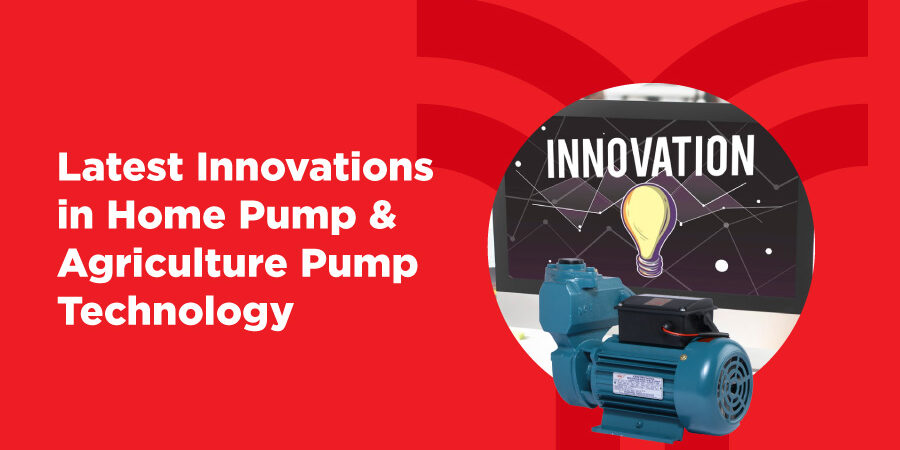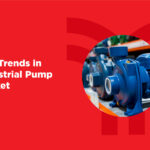Latest Innovations in Home Pump & Agriculture Pump Technology
For a long time, water pumps have been necessary equipment for both residential and agricultural purposes. 2 Hp Agriculture Water Pumps have become much more capable and efficient as technology has advanced. Pump technology is evolving at a rapid pace, changing the way that water is managed in homes and fields while lowering costs, increasing convenience, and promoting sustainability. The most recent advancements in agricultural and residential pump technology will be discussed in this blog.
Smart Pump Technology
The integration of smart features is one of the most interesting developments in pump technology. With the use of smartphone apps or other smart devices, smart pumps can be remotely operated and observed. Real-time monitoring and adjustments are made possible by the sensors that are built into these pumps. These sensors can measure temperature and water flow.
Smart pumps can minimize energy use, maximize water usage, and alert owners of possible problems like leaks or system breakdowns. Farmers may automate watering schedules based on crop requirements and soil moisture levels by integrating smart pumps into larger irrigation management systems. This practice conserves water and guarantees that crops are adequately hydrated.
Solar-powered Pumps
In both the domestic and agricultural sectors, solar-powered pumps have become increasingly popular as the globe moves toward renewable energy. These solar-powered pumps are an environmentally friendly substitute for conventional electric or diesel-powered pumps because they run on sun energy. In isolated locations with little or no access to electricity, solar pumps are especially helpful.
Solar-powered pumps are used in agriculture to extract water for irrigation from storage tanks, rivers, and wells. For farmers who want to reduce their environmental impact, these pumps are an appealing solution because of the lower energy costs and sustainability component. Furthermore, improvements in battery storage technology and solar panel efficiency have made solar pumps more dependable and able to function at night or on overcast days.
Variable Speed Drivers
Pump technology has completely changed thanks to variable speed drives (VSDs), which provide notable energy savings and enhanced performance. Pump speeds can be adjusted by VSDs based on the amount of water required. Regardless of the real need, traditional pumps frequently operate at a fixed speed and consume the same amount of energy. On the other hand, a pump that has a variable speed drive (VSD) can modify its speed to correspond with the necessary water flow, which lowers energy usage and pump wear.
VSDs in residential water systems help keep the water pressure steady even when several fixtures are in operation at once. By modifying the flow rate in accordance with the unique requirements of various crops or fields, VSDs in agriculture can optimize irrigation, resulting in more economical use of water and lower energy expenditures.
Magnetic Drive Pumps
Magnetic drive pumps, or mag-drive pumps, are an innovative solution that eliminates the need for traditional seals and reduces the risk of leaks. The impeller of these pumps is driven by the pump through the use of magnetic fields that transmit energy from the motor. Because there are fewer moving components when there are no mechanical seals, there is less need for maintenance and the pump will last longer.
Mag-drive pumps are perfect for some agricultural applications that require chemicals or fertilizers since they are very helpful in managing caustic or dangerous fluids. Leak-free operation is critical for residential and agricultural water systems as it improves safety and reduces the possibility of contamination.
High-Efficiency Pump Designs
The goals of recent developments in pump design have been to lower energy usage and increase efficiency. To reduce energy loss and increase water movement, high-efficiency pumps make use of cutting-edge materials, impellers that are precisely built, and flow pathways that are optimized. These pumps are typically easier to install and maintain because of their compact designs.
High-efficiency Submersible Water Pump for Home can save homeowners a lot of money on energy costs, particularly in areas with high water demands. These pumps can help farmers adopt more environmentally friendly farming methods by lowering the total energy needed for irrigation and other water-dependent operations.
IoT Enabled Pump Systems
Our interactions with and management of a wide range of devices, including water pumps, are being completely transformed by the Internet of Things (IoT). Pump systems that are Internet of Things (IoT) enabled can interact with other intelligent systems and gadgets to exchange useful data that can be utilized to maximize pump efficiency and water consumption. For instance, to develop a completely automated irrigation system that reacts instantly to changing conditions, an Internet of Things-enabled agricultural pump can be connected to crop management systems, weather stations, and soil sensors.
IoT-enabled pumps in homes can integrate with leak detection sensors, irrigation systems, and water heaters to form a larger smart home ecosystem. Greater control and efficiency are made possible by this connection, guaranteeing that water is used wisely throughout the house.
The most recent advancements in agricultural and residential pump technology are revolutionizing water management by increasing system dependability, efficiency, and environmental friendliness. These innovative technologies can help you accomplish your goals, whether you’re a farmer trying to maximize irrigation or you’re looking to improve your water system. We may anticipate even more fascinating advancements in pump technology as technology progresses, which will improve our capacity to efficiently manage water supplies.


